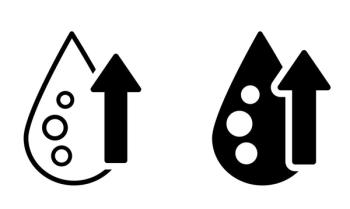
Patients Will Split Pills, But Want a Piece of the Cost-Savings
ANN ARBOR, Mich. -- Cutting statin pills in half proved safe and effective and could reduce patients' prescription costs, researchers here found.
ANN ARBOR, Mich., June 13 -- Cutting statin pills in half proved safe and effective and could reduce patients' prescription costs, researchers here found.
After six months, 89% of 111 patients in a randomized trial were willing to continue pill-splitting if given a 50% reduction in their per-refill copay, said Hae Mi Choe, Pharm.D., of the University of Michigan, and colleagues.
More than 90% of the patients in the trial agreed that splitting pills did not negatively affect their adherence, they reported in the June issue of the American Journal of Managed Care.
And, overall, lipid profiles did not change significantly over the course of the pill-splitting period in either group, and pill fragmentation was not a problem, they said.
However, in this relatively educated population, the financial incentives of sharing insurance-plan savings did not influence patients' adherence, satisfaction, or their lipid levels, the researchers reported.
Statins included in the trial were atorvastatin (Lipitor), simvastatin (Zocor), and pravastatin (Pravachol).
In the nested trial, 200 patients with hyperlipidemia who used statins and were candidates for a pill-splitting regimen were identified from a large university-based health plan.
Sixty-three percent of the study participants were female, 41% were nonwhite, and 94% had at least some college education.
Of the patients, 111 consented to participate in a six-month trial in which 55 were randomized to receive a 50% reduction in their per-refill copay as a financial incentive to split their pills.
All patients received a free pill cutter. The investigators provided two choices: a small blue cutter without rubber padding and a clear splitter with rubber padding and a wider cutting area to fit larger tablets. Most patients preferred the latter device.
Data on patients' statin refills and lipid control were obtained from billing and medical records.
After six months, the researchers compared patients who were given the co-pay reduction and those who paid the full amount in terms of their satisfaction with pill splitting, their willingness to continue splitting pills, and their lipid levels.
Low-density lipoprotein cholesterol levels after pill splitting were ?2.0 mg/dL in the copayment-reduction group and ?1.2 mg/dL in the non-reduction group (P=0.24), the researchers reported. These were not significant changes over baseline before the study began.
Most patients in the trial (89%) were willing to continue pill splitting if given a 50% reduction in their copayment, the researchers reported.
Responses in both groups were generally similar with respect to the perceived effort of splitting the pills. Asked whether they agreed with the statement that the effort of splitting the pills was "no big deal," approximately 80% either "strongly agreed" or "agreed."
When pill-splitting programs are implemented, only the prescription plan benefits financially unless there is some cost-sharing with patients, the investigators said.
Although in this study, cost-sharing with patients did not significantly affect patients' willingness to participate, most patients said they would expect some financial incentive to continue splitting pills.
In any program, pill-splitting should be implemented with consideration of which tablets can be split without compromising clinical outcomes, as well as recognizing that this practice is safe only for patients able cognitively and physically to split tablets, the investigators cautioned.
Most patients indicated that at least a 50% reduction in copay would be required to enroll in a pill-splitting program after the study ended. However, this randomized trial found that financial incentives did not influence patients' adherence, satisfaction with splitting, or lipid levels, the researchers concluded.
Newsletter
Enhance your clinical practice with the Patient Care newsletter, offering the latest evidence-based guidelines, diagnostic insights, and treatment strategies for primary care physicians.
































































































































